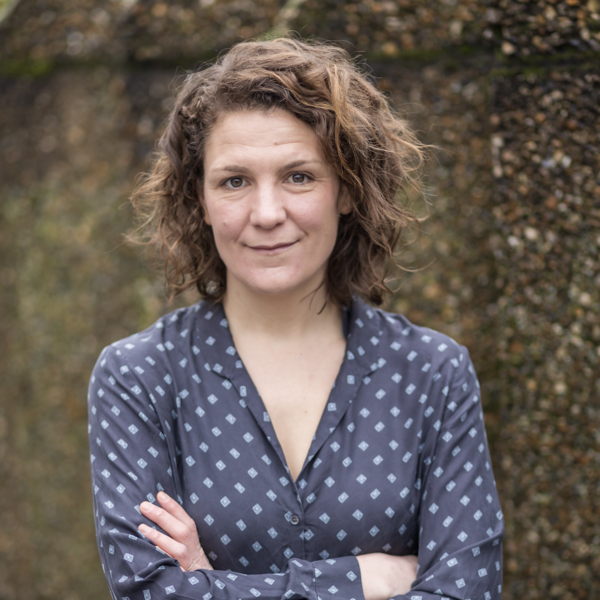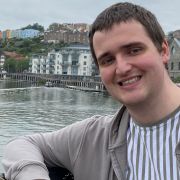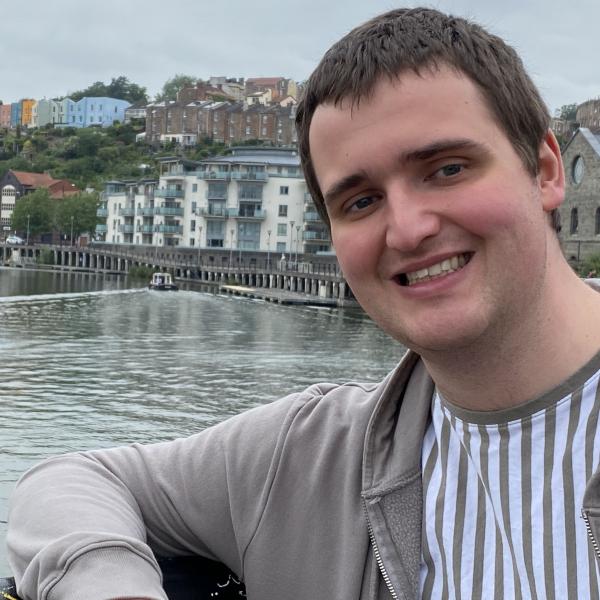Dr Emily Baughan
B.A. (Bristol), M.A. (Bristol), Ph.D. (Bristol)
School of History, Philosophy and Digital Humanities
Senior Lecturer in 19th/20th Century British History


+44 114 222 2573
Full contact details
School of History, Philosophy and Digital Humanities
9 Mappin Street
Sheffield
S1 4DT
- Profile
-
I joined the University of Sheffield in September 2016. Before then I was a Lecturer in Modern History at the University of Bristol, and a Max Weber Fellow at the European University Institute in Florence, Italy. I completed my Ph.D. at the University of Bristol in 2014, and during my postgraduate studies was a Fulbright Scholar at Columbia University in New York and held fellowships at the Library of Congress in Washington D.C. and the University of Cape Town.
My first book Saving the Children: Humanitarianism, Internationalism and Empire was published in 2021 with the University of California Press. It analysed the intersection of liberal internationalism and British imperialism, as expressed by a burgeoning humanitarian movement between the two world wars and during the era of decolonization. During my research on this project, I worked with Save the Children UK as a research fellow, and organised an international conference for Save the Children’s centenary in 2019 on the importance of histories of aid today.
My current book project, Love’s Labour: a history of childcare, examines the political economy of childhood, exploring the dialogue between Western states and families about the care of their youngest members in the modern era. Tracing patterns of childcare from the decline of private wetnursing in the mid-nineteenth century to the present-day marketized sector, Love’s Labour shows that patchy childcare solutions have usually expressed the tensions between the economic citizenship of women and children, which have yet to be
resolved.I am a 2024 BBC New Generation Thinker, and served for 6 years on the editorial board of OUP journal Modern British History.
Membership of Professional Bodies
I’m a member of the EU COST funded international research network, Who Cares in Europe, which explores interconnected histories of welfare. I was also an advisor on the Wellcome Trust-funded project to catalogue and make available the archives of Save the Children UK at the Cadbury Library in Birmingham. I am a fellow of the Royal Historical Society.
- Research interests
-
My research examines ideas about society, the economy and politics through attitudes towards children, care and family life. I see domestic space, milk, toys, nursery schools and playgroups as texts for reading ideas about ideal citizenship, international society, local community and the family.
My work places the history of modern Britain within wider international and imperial contexts. It examines how ideas about childhood and welfare in Britain shaped international humanitarianism and the emergence of postcolonial welfare states. It also casts light on the ways that (post)colonialism enabled the creation of the British welfare state and (for elites) mitigated its decline through postimperial migration and the racialised undervaluing of care work.
Love’s Labour, an intimate history of childcare
My current book project, Love’s Labour: a history of childcare, examines the political economy of childhood, exploring the dialogue between Western states and families about the care of their youngest members in the modern era. Tracing patterns of childcare from the decline of private wetnursing in the mid-nineteenth century to the present-day marketized sector, Love’s Labour shows that patchy childcare solutions have usually expressed the tensions between the economic citizenship of women and children. While modern states became increasingly interested in the future economic potential of children, welfarist governments sought to deny women’s productive potential outside traditional caring roles. This tension has only been exacerbated by the retrenchment of welfare provision that began in the 1970s. The book situates British history within a wider international framework: it compares childcare within states that have shared a similar industrial trajectory across Europe and North America, while weaving together intimate portraits of care work gathered from transnational archival research.
Past research
Saving the Children, Humanitarianism, Internationalism and Empire, 1914-1970 (University of California Press, 2021) Shortlisted for the RHS Whitbread Prize and the SHCY Grace Abbott Book Prize
My first book tells the story of the rise of international humanitarianism through the work of the NGO, Save the Children. I argue that British international humanitarianism was born out of the peculiarity of Britain’s imperial role in an emerging international world order. British humanitarianism sought to create an international order favorable to British imperial rule, while seeking to downplay British imperial ambition. After empire’s end, British internationalism became a means of performing Britain’s ongoing global role. Aid was more than just a set of performances designed to showcase Britain’s role in a changing world. It was very direct attempt to shape the world in Britain’s own image. In the book, I look at the practices as well as the principles of international humanitarianism, as it was being enacted in eighteen different countries across a fifty-year time span. While Save the Children claimed to be ‘saving children to save the world’ but the vision of the world it was trying to save was a very specific one, based on international capitalism and colonial rule.
- Publications
-
Books
- Saving the Children: Humanitarianism, Internationalism, and Empire. Berkeley, C.A.: University of California Press.


Journal articles
- POSTERS, PROTESTS, AND PRESCRIPTIONS Cultural histories of the National Health Service in Britain. TLS-THE TIMES LITERARY SUPPLEMENT(6264), 5-5.


- THE WELFARE STATE GENERATION Women, agency and class in Britain since 1945. TLS-THE TIMES LITERARY SUPPLEMENT(6264), 5-5.


- Rehabilitating an empire: humanitarian collusion with the colonial state during the Kenyan emergency, ca.1954-1960. Journal of British Studies, 59(1), 57-79. View this article in WRRO


- History and Humanitarianism: A Conversation. Past & Present, 241(1), e1-e38.


- International adoption and Anglo-American internationalism, c. 1918-1925. Past & Present, 239(1), 181-217. View this article in WRRO


- Save the Children, the humanitarian project, and the politics of solidarity: reviving Dorothy Buxton's vision. Disasters, 39(s2), s129-s145. View this article in WRRO


- Empire and Humanitarianism: A Preface. The Journal of Imperial and Commonwealth History, 40(5), 727-728.


- Labour Pains: Mothers and Motherhood on the British Left in the Twentieth Century. Transactions of the Royal Historical Society, 1-22.


- Neoliberalism, Neonates, And Hospital Nurseries in Contemporary Britain. History Workshop Journal.


Book reviews
- Jennifer M. Morris, Origins of UNICEF, 1946–1953. Journal of Contemporary History, 52(3), 787-789.


- Saving the Children: Humanitarianism, Internationalism, and Empire. Berkeley, C.A.: University of California Press.
- Research group
-
Research supervision:
I am interested in supervising projects that relate to the history of popular politics, internationalist activism, NGOs, humanitarianism, development and human rights, feminism, the welfare state and childhood in Britain, the British Empire/Commonwealth and Europe in the 19th and 20th Centuries. I am also interested in students who like to examine local histories of Sheffield, especially the lives of care workers after the decline of Sheffield’s major industries.
- Current Students
Primary Supervisor
- Teaching activities
-
Undergraduate:
- HST2518 - The Welfare State in Modern Britain, 1900-present
- HST3156/7 - Humanitarianism, Internationalism and the British Empire, 1900-2000
- HST3307 - Conflict, Cultures and (De)Colonisation
- Professional activities and memberships
-
Administrative Duties:
I convened the Race, Equality and Decolonisation Working Party in the history department at the University of Sheffield.
- Public engagement
I have been working with Save the Children UK since 2014, organising major international conferences, workshops, and humanitarian practitioner education. In 2018 I worked as a research on a landmark legal inquiry into the protection of children in conflict chaired by former Prime Minister Gordon Brown. I am a fellow of the Alameda Institute.
I write for the Times Literary Supplement, Jacobin and Tribune. I appear regularly on BBC Radio 4 on programmes including Woman’s Hour and Free Thinking.


